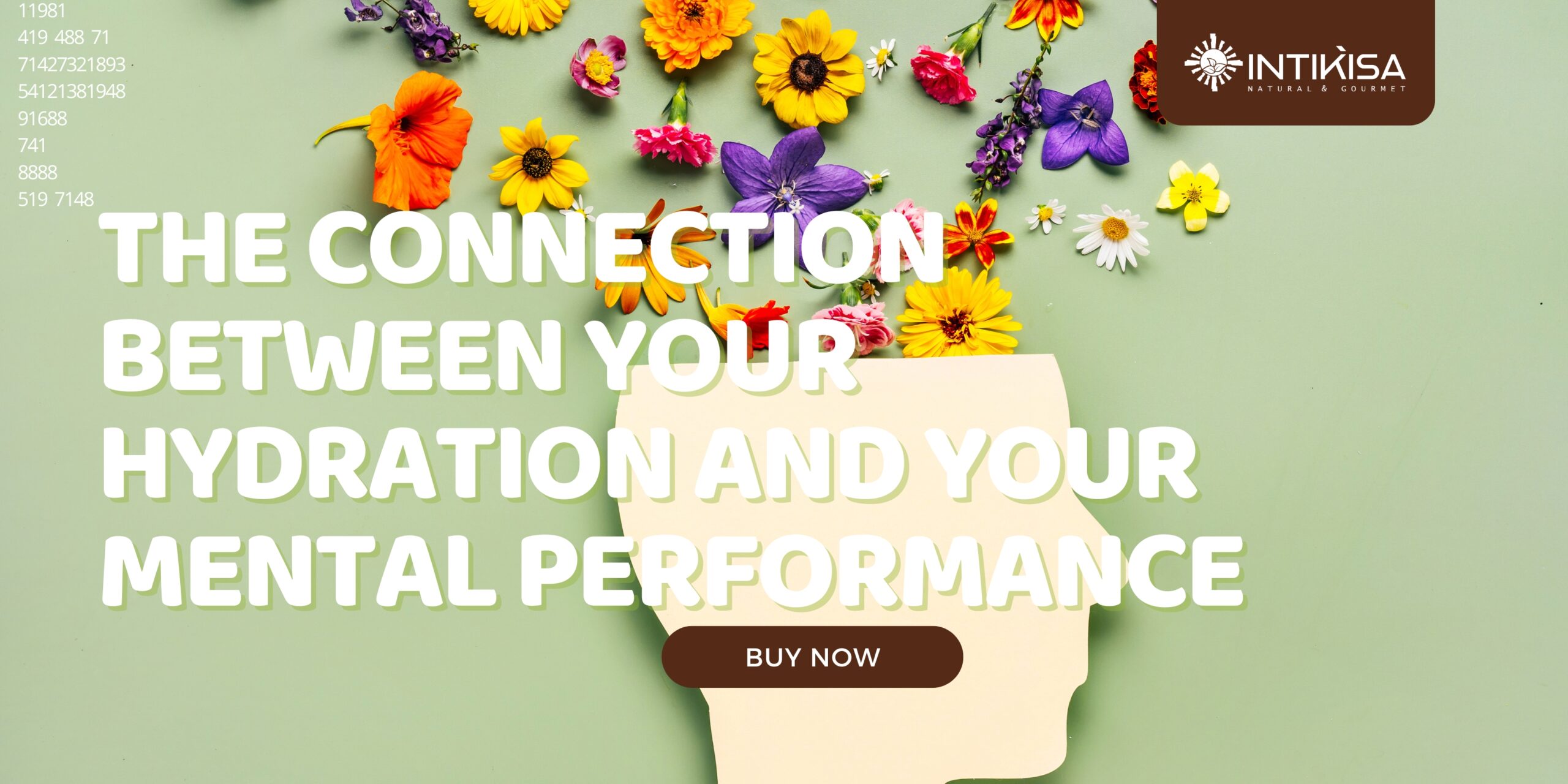When we talk about hydration, the first thing that comes to mind is drinking water. And yes, it’s essential, but real and effective hydration for your body and brain goes much further. It’s not just about the amount of water, but also about maintaining the right balance of electrolytes and micronutrients that allow the liquid to actually be used by your cells.
Why Your Brain Needs More Than Water
The human brain is made up of approximately 75% water (Gorelick et al., 2011). Even a 1–2% loss of total body water can affect short-term memory, focus, and mood (Popkin et al., 2010).
When we only drink water without replenishing electrolytes and minerals, the body cannot maintain optimal fluid balance. This can result in symptoms such as:
– Mental fatigue
– Headache
– Lack of concentration
– Increased perception of stress
Cellular Hydration: The Level Few Consider
Cellular hydration refers to the ability of cells to retain and use the water we consume. This process largely depends on electrolytes such as sodium, potassium, magnesium, and calcium, as well as slow-absorbing carbohydrates that help transport water into the cells.
Simple example: Drinking a glass of water with a pinch of sea salt and some potassium-rich fruit (like banana or aguaje) improves cellular hydration much more than drinking plain water alone.
Foods That Hydrate Inside and Out
These foods not only provide water but also the minerals and nutrients that help keep your body and mind working at 100%:
– Camu camu → Rich in vitamin C, which improves iron absorption and supports collagen production, essential for tissues and blood vessels.
– Aguaje → A source of potassium and antioxidants, contributing to electrolyte balance and hormonal health.
– Fruits like watermelon and melon → Provide water, potassium, and magnesium.
– Cacao → Contains magnesium, key for nerve impulse transmission.
– Quinoa → Provides magnesium and complex carbohydrates that help transport water at the cellular level.
Hydration and Mental Performance
When the brain is well hydrated:
– Reaction speed increases
– Concentration and short-term memory improve
– Fatigue sensation decreases
– Mood is optimized thanks to balanced brain chemistry
A study published in The Journal of Nutrition (2012) showed that mild dehydration negatively affects alertness, especially in young women, even before they feel thirsty.
How to Integrate Smart Hydration into Your Day
- Don’t wait until you feel thirsty: thirst is a sign you’re already dehydrated.
2. Combine water with functional foods: an Inka Golden or Machu Picchu smoothie not only hydrates but also provides protein, fiber, and minerals.
3. Include fruits and superfoods rich in electrolytes: camu camu and aguaje are excellent allies.
4. Avoid sugary drinks: even if they seem refreshing, they cause more water loss due to their diuretic effect.
Conclusion
Hydration is not just about liters of water. It’s about balancing fluids, minerals, and nutrients so your cells, muscles, and brain can function at their full potential. If you want to improve your mental energy, focus, and mood, start hydrating smart: with foods and superfoods that work in your favor.
At Intikisa, every product is designed not only to nourish you but also to help you stay hydrated from within.
Sources
– Gorelick PB et al. ‘Cognitive and neural consequences of hydration in humans.’ Nutrition Reviews, 2011.
– Popkin BM et al. ‘Water, hydration and health.’ Nutrition Reviews, 2010.
– Ganio MS et al. ‘Mild dehydration impairs cognitive performance and mood of men.’ Journal of Nutrition, 2011.








